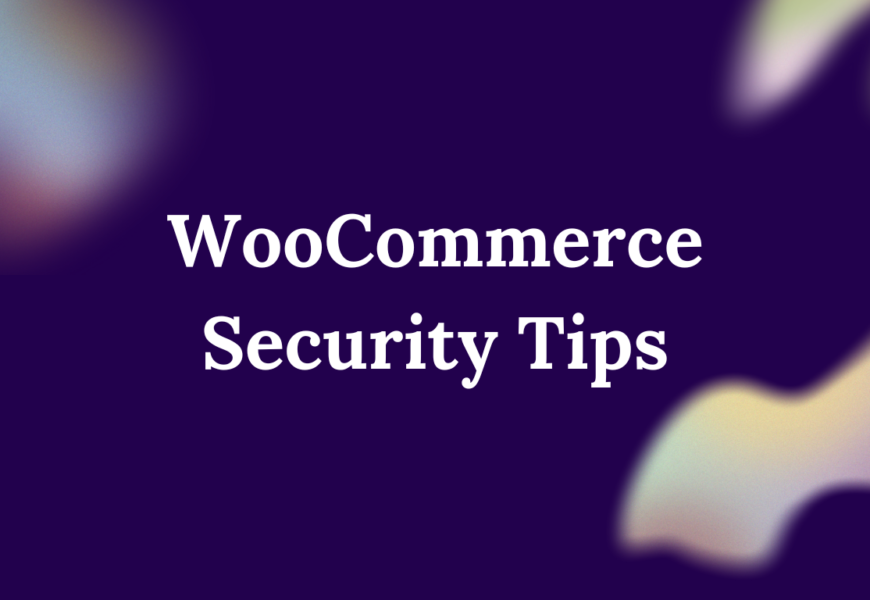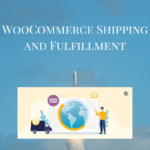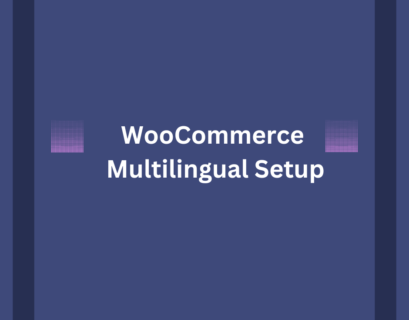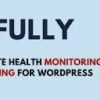WooCommerce Security Tips.
In today’s digital age, e-commerce has become an essential part of the business landscape. WooCommerce, a popular e-commerce platform, powers a significant portion of online stores. While it offers a user-friendly interface and a range of features, it’s essential to prioritize security to protect your e-commerce store and customer data. In this blog, we will explore WooCommerce security tips to help you safeguard your online business.
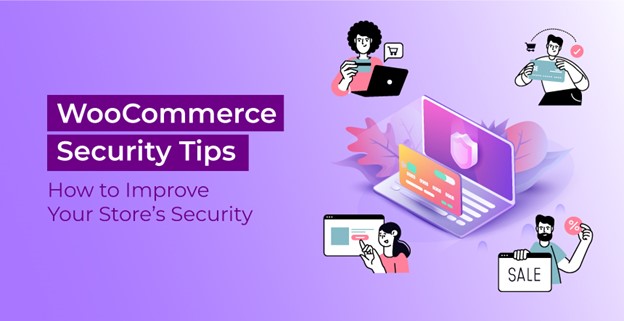
Why WooCommerce Security Matters
E-commerce security is crucial for several reasons:
- Customer Trust: Customers need to trust your store with their personal and financial information. A security breach can damage your reputation and lead to a loss of trust.
- Legal Consequences: Data breaches can result in severe legal consequences, including fines and lawsuits, if you fail to protect customer data adequately.
- Financial Loss: Security breaches can lead to financial losses due to stolen funds, chargebacks, and the cost of fixing the issue.
- Downtime: If your store experiences a security incident, it may become temporarily or permanently unavailable, leading to loss of revenue and customers.
Now that we understand the importance of WooCommerce security, let’s delve into some essential security tips.
https://www.codeable.io/blog/woocommerce-security/
1. Keep WooCommerce and Plugins Updated
One of the simplest yet most effective security measures is keeping your WooCommerce installation and all associated plugins up to date. Developers regularly release updates that include security patches to address vulnerabilities. Failing to update your software can leave your store susceptible to known exploits.
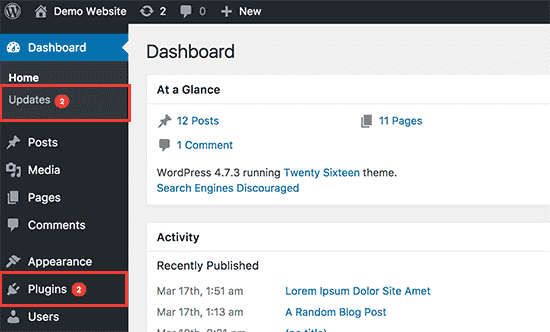
To ensure your e-commerce store stays secure:
- Enable automatic updates for WooCommerce and plugins whenever possible.
- Regularly check for updates manually and apply them promptly.
- Remove any outdated or unused plugins to reduce your attack surface.
2. Choose a Reliable Hosting Provider
The choice of hosting provider can significantly impact your store’s security. Opt for a reputable hosting company that specializes in e-commerce and offers robust security measures. Look for features like SSL certificates, firewalls, malware scanning, and regular backups.
Shared hosting can be more vulnerable to security breaches compared to dedicated or managed hosting. Consider your store’s size and traffic when selecting a hosting plan.

3. Use Strong Passwords and Implement Multi-Factor Authentication (MFA)
Weak passwords are a common entry point for attackers. Ensure that you and your team use strong, unique passwords for your WooCommerce store. A strong password typically includes a combination of upper and lower-case letters, numbers, and special characters.
Additionally, enable multi-factor authentication (MFA) to add an extra layer of security. MFA requires users to provide two or more forms of verification before granting access, making it significantly more challenging for unauthorized users to gain entry.
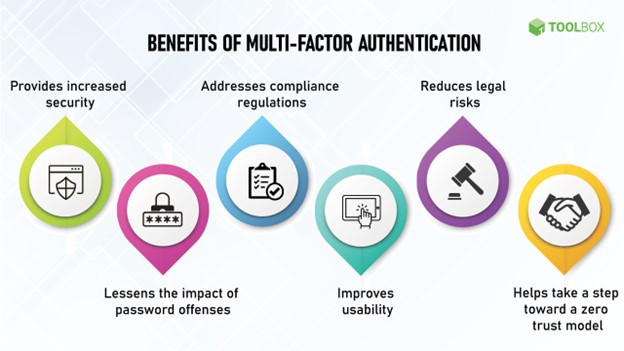
4. Regularly Backup Your Store
Having up-to-date backups of your WooCommerce store is essential in case of data loss or a security incident. Make sure your backup strategy includes:
- Regular automatic backups: Schedule daily or weekly backups of your website.
- Off-site storage: Store backups on a remote server or cloud storage to ensure they remain safe even if your server is compromised.
- Test restores: Periodically test your backups to ensure they can be successfully restored in case of an emergency.

5. Implement Secure Sockets Layer (SSL) Encryption
SSL encryption is a fundamental security measure for any e-commerce store. It encrypts the data transmitted between the customer’s browser and your website, ensuring that sensitive information like login credentials and payment details remains confidential.
Most hosting providers offer free SSL certificates, and WooCommerce makes it easy to enable SSL on your store. Ensure that your site’s URL starts with “https://” and displays a padlock icon in the browser’s address bar.

6. Monitor for Suspicious Activity
Implementing real-time monitoring for suspicious activities can help you detect and respond to security threats promptly. Consider using security plugins or services that offer features such as:
- Intrusion detection: Identifying unauthorized access attempts and suspicious behavior.
- Log monitoring: Analyzing server logs for unusual patterns or errors.
- Notification alerts: Receiving instant alerts when potential threats are detected.

7. Limit User Access and Permissions
Not everyone on your team needs full access to your WooCommerce dashboard. Limit user access and permissions based on their roles and responsibilities. For example, only administrators should have complete control, while other team members might have restricted access.
By implementing role-based access control, you reduce the risk of accidental changes or malicious actions by users with limited privileges.

8. Secure Payment Processing
Payment security is a top priority for e-commerce stores. Ensure that your payment gateway is secure and compliant with Payment Card Industry Data Security Standard (PCI DSS) requirements. Here are some additional tips:
- Use reputable payment gateways with strong security measures.
- Don’t store payment card information on your server.
- Regularly audit and update your payment processing system to address vulnerabilities.

9. Protect Against DDoS Attacks
Distributed Denial of Service (DDoS) attacks can overwhelm your server with traffic, causing your store to become unavailable. To protect against DDoS attacks:
- Use a web application firewall (WAF) to filter out malicious traffic.
- Employ a content delivery network (CDN) to distribute traffic and absorb DDoS attacks.
- Choose a hosting provider with DDoS protection capabilities.

10. Educate Your Team
Your team plays a crucial role in maintaining security. Educate them about best practices and potential threats. Conduct regular training sessions to keep everyone informed about the latest security risks and how to mitigate them.

